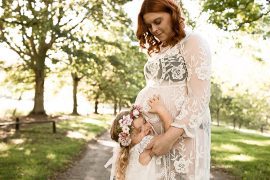By Elspeth Witton
Hands up if you:
- Find cooking separate meals for adults and children day after day a bit tedious, let alone far too time consuming
- Have kids that eat OK, but know what they like and don’t like and some days don’t eat much at all
- Start to feel stressed about whether your toddler is eating enough when they start waking more in the night than usual
If this is you, then what the most up to date research is telling us about how to help toddlers develop healthy eating habits and how their eating affects – or more importantly does not affect – their night time waking, is going to be a great relief to you.
We love it because it’s easy, fun, makes meals times more relaxed and enjoyable as possible!
Before we start with the top 5 tips, here is my favourite meal time stress reducer. Research shows that encouraging more solids in toddlers (6-12 months of age) that are waking frequently during the night does not affect the number of times they wake for reassurance overnight. It does reduce the amount that they need to be fed overnight, but even when feeding less, their amount of night time waking, needing reassurance, does not reduce.
This tells us that if your toddler is being regularly offered a wide variety of healthy food, is eating and drinking well, there is no need to actively encourage them to eat more in the hope of reducing night time waking.
So, now that we have taken the pressure off solid intake and night time waking, here are our Top 5 Tips to help your toddler develop healthy eating habits:
- No toddler will starve when there is food around to be eaten
It’s quite natural for toddlers of eat cyclically, some days eating like a horse and others like a mouse. Try not to worry about this, but keep offering your toddler a wide range of healthy food, knowing that they will eat when they are hungry. If you are needing to use heavy distraction to encourage your toddler to eat, e.g. TV, toys, iPad, etc., it may be that your toddler is not that hungry. Experiment to discover your toddler’s natural eating rhythms, don’t worry if they don’t eat what you offer them at that time (although it can be frustrating) so that meal times are relaxed and enjoyed for what they are. This will help your toddler to learn to regulate their own intake, enjoy and appreciate food, which is important in developing healthy eating habits.
- Offer babies a wide range of food groups between 6-12 months – before they get fussy!
After approximately 12 months of age, many toddlers get very fussy with what they will and won’t eat. This is a form of self-preservation, as they become more mobile and inquisitive this fussiness about what they will and won’t put in their mouth can save their lives, as they don’t eat those poisonous berries in the neighbours garden. Between 6-12 months of age the easiest way to help your toddler eat a wide variety of food and eat the types of food you like to eat, is to simply offer them the same meals that you prepare for the rest of your family. If you are cooking healthy food (with no added salt) and have a balanced diet, this is fine, just adapt (puree, mash, soften or leave it as it is) the food to suit the stage of eating that your baby/toddler is up to. This works if you are doing baby-led weaning or not, or you are somewhere in between.











